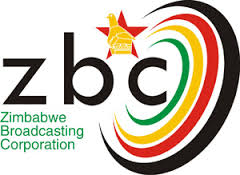Story by Wellington Makonese
Amilcar Cabral is undoubtedly one of the most successful guerrilla leaders and Pan African revolutionaries whose anti-colonial resistance brought the Portuguese to their knees in Cape Verde and Guinea Bissau.
In our I’m an African Feature, we celebrate a political leader who mastered political action and theoretical development in the quest for decolonisation.
Born Amilcar Lopes da Costa Cabral on 12 September 1924, Amilcar Cabral as he was to be known, was raised by Cape Verdean parents in Bafata, Guinea-Bissau, a wealthy and influential family that synced with his strong political education, love for poetry and an interest in agriculture.
He grew to witness the gross injustices towards the people of Portuguese Guinea now Guinea Bissau and Cape Verde and had to seek education in Portugal to enhance himself.
His educational background would make a leader who would redefine the boundaries between revolutionary action and theorisation on return to Cape Verde that changed the course of history of African Liberation.
In September 1956, Cabral Co-established a Political Party, that was later to be called the African Party for Independence of Guinea and Cape Verde Islands (PAIGC) and developed the complex political theory of national liberation that gave substance and meaning to political action.
His party’s intentions were initially to peacefully campaign for independence but that changed in 1959, when Portuguese soldiers opened fire on protesting dockworkers, killing 50 of them.
An armed struggle would begin in 1962 and Under Cabral’s leadership, the PAIGC liberated three-quarters of the countryside of Guinea in less than ten years of revolutionary struggle.
Beginning in 1963, Cabral took his party into an open war for the independence of Cape Verde and Guinea Bissau, registering success and establishing himself as a chief diplomat, commander-in-chief of the movement and master organiser.
His success became a threat to the Portuguese dominance with fears the revolution would spread to Mozambique and Angola.
With the help of France, Portugal invaded Guinea-Conakry and Senegal between 1969 and 1970, to achieve the aim of destroying the PAIGC, which had offices in Conakry but failed.
The Portuguese eventually succeeded to infiltrate the party through Inocêncio Kani, who allegedly with the backing and support of PIDE (Portugal’s secret police), assassinated Cabral in Conakry on 20 January 1973 while walking home with his second wife, Ana Maria Cabral.
However, the most significant success of Cabral’s leadership was developing a party that could operate effectively without him, hence the PAIGC was able to proceed with the planned declaration of independence of Guinea-Bissau a few months later, on 24 September 1973.
This was later recognised by United Nations General Assembly vote in November 1973 while Cape Verde became independent in 1975.
Cabral is widely remembered for theorising and unpacking how imperialism, colonisation and neo-colonialism in Africa, operated to destroy both the history and future of African peoples, citing that any struggle to escape these forces had to take into account the nature and impact of those forces.





